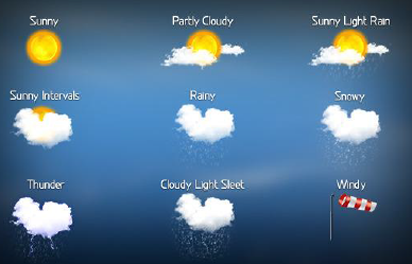There has been extreme heat in several places of Nigeria since the start of the year! The country-wide heat wave that is still running strong has alarmed health experts as well. In fact, the blistering heat-wave is likely to cause heat strokes for Nigerians in Abuja, Kano, and many other Northern states if safety precautions are not taken, according to the Nigerian Meteorological Agency, Nimet.
Extreme weather is becoming more common and intense in many places of the world. However, what does “extreme weather” actually mean? A discernible shift in weather patterns, characterised by extreme conditions such abruptly high or low temperatures, substantial precipitation, and powerful winds, is referred to as “extreme weather.” The six primary components of weather are air pressure, temperature, wind, humidity, cloud formation, and precipitation. A slight alteration to any of these factors can result in a distinct meteorological pattern.
What then are a few of the reasons behind extreme weather, and heat waves specifically? According to climate scientists, heat waves happen when the atmosphere is under high pressure, which pushes hot air downward and stores it close to the ground. The temperature rises more because of the high-pressure system’s locking effect, which stops hot air from rising.
However, in addition to natural reasons, human activity also modifies the climate quickly, which can lead to extreme weather events. For example, carbon dioxide, a greenhouse gas that traps solar radiation, is released into our atmosphere when fossil fuels are burned for transportation, heat, and power. As emissions of greenhouse gases such as carbon dioxide, methane, and others rise over time, they serve as a blanket, trapping heat and raising global temperatures.
Furthermore, excessive heat raises the need for air conditioning, which adds to carbon emissions and strains our energy infrastructure, resulting in a low supply of electricity or power outages. The combustion of fossil fuels, deforestation, and industrial activity have all contributed to global warming, which has raised temperatures. The urban heat island effect, which is brought on by the concentration of concrete and asphalt surfaces as well as the decrease in vegetation and other human sources of heat, also exacerbates or worsens heat waves in urban settings.
Methane emissions are another element that some scientists have pointed to as having a significant role in the nation’s current heat wave. The primary component of natural gas is methane, an odourless and colourless combustible gas. Methane has an 80% greater capacity to capture carbon dioxide and heat. This means that since methane stores heat, releasing it until it disperses increases the heat wave. For this reason, it is estimated that methane alone is responsible for around 40% of all environmental heat-related problems worldwide.
For this reason, experts have urged Nigerians to take action to lower methane emissions into the atmosphere. According to experts, we can lower the amount of methane released into the atmosphere by eliminating human activities that cause methane to be produced. Additionally, we must take charge of our advocacy efforts and make every effort to manage our trash properly in order to lower the amount of methane that is released into the atmosphere during the short term.
Additionally, we must make sure that less waste is dumped at dumpsites carelessly. This is due to the fact that methane can occasionally be produced quite naturally when organic molecules break down. In order to lower carbon emissions and improve climate resilience, both individual and community activities are required.
How can humans survive during a heat wave?
The most important thing is to stay hydrated and cool. It’s crucial to stay hydrated by drinking a lot of water before you feel thirsty. Reduce your use of alcoholic and caffeinated beverages as well. Take regular baths and make sure living areas have adequate ventilation. Avoid the heat as well. If at all possible, avoid going outside during the warmest parts of the day. Use hats and umbrellas for protection when you’re outside, and try to stay in the shade or wear sunscreen. Don loose, light clothing as well.
What actions are possible to combat global warming? Planting trees is a very effective first line of defence against global warming because they collect carbon dioxide from the atmosphere and replenish it with oxygen, as demonstrated by scientific research. They also make a significant aesthetic contribution to the surroundings. Furthermore, trees act as windbreakers, reducing wind speed and preventing erosion. Furthermore, trees are also very effective cleaners. Planting trees is therefore one of the most effective strategies for promoting environmental stability and environmental protection.











